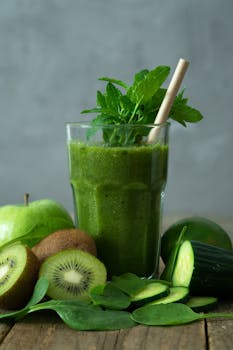Curious if your cat can safely nibble on carrot tops? Whether you’re a gardening enthusiast or just noticed your cat eyeing the scraps from your kitchen prep, it’s essential to know if this leafy green is safe for your feline friend. Let’s dive into the facts about carrot tops, their nutritional value, and how they can fit into your cat’s diet.
🥕 Are Carrot Tops Safe for Cats?
The good news: carrot tops are non-toxic to cats! Unlike some vegetables and greens that pose risks to felines, carrot tops are generally safe for cats to eat in moderation. However, that doesn’t mean they’re a perfect snack. While carrot tops are rich in nutrients like vitamin K, vitamin C, and calcium, they are not a necessary part of your cat’s diet.
Cats are obligate carnivores, meaning their bodies are designed to thrive on meat. Plant-based foods, including carrot tops, should only be offered occasionally and in small amounts. Feeding too much could lead to digestive upset or interfere with their ability to absorb nutrients from their regular food.
🌿 Nutritional Benefits of Carrot Tops
Carrot tops are packed with nutrients that might make them seem like a healthy choice for your cat. Here’s a breakdown of what they offer:
- Vitamin K – Supports blood clotting and bone health
- Vitamin C – Acts as an antioxidant to support the immune system
- Calcium – Aids in maintaining strong bones and teeth
- Fiber – Helps with digestion in small amounts
While these nutrients are beneficial, cats obtain everything they need from a high-quality, meat-based diet. Carrot tops should never replace their primary food source. Instead, think of them as an occasional treat, much like catnip or a small piece of cooked fish.
🐾 Can Cats Digest Carrot Tops?
One of the most important considerations when feeding your cat carrot tops is their digestibility. Cats lack the digestive enzymes to break down plant material efficiently. This means carrot tops may pass through their system largely undigested, providing minimal nutritional value.
If you do offer carrot tops, always ensure they are chopped into tiny pieces and steamed or blanched first. Raw carrot tops can be tough to chew and digest, increasing the risk of choking or gastrointestinal upset.
🛑 Risks of Feeding Carrot Tops to Cats
While carrot tops are non-toxic, there are still some potential risks to keep in mind:
- Digestive upset – Eating too many carrot tops can cause vomiting or diarrhea.
- Choking hazard – Raw or large pieces may get stuck in your cat’s throat.
- Allergic reactions – Though rare, some cats may have an adverse reaction to new foods.
- Interference with nutrition – Overfeeding plant-based foods can dilute the protein and nutrients your cat needs from their regular diet.
Always introduce new foods gradually and monitor your cat for any signs of discomfort. If your cat shows symptoms like vomiting, diarrhea, or loss of appetite after eating carrot tops, stop offering them immediately and consult your veterinarian.
🐱 How to Safely Feed Carrot Tops to Your Cat
If you want to share carrot tops with your cat, here’s how to do it safely:
- Wash thoroughly – Remove any dirt, pesticides, or chemicals from the leaves.
- Cook lightly – Steam or blanch the carrot tops to make them softer and easier to digest.
- Chop finely – Cut them into small, manageable pieces to reduce the risk of choking.
- Offer sparingly – A small pinch of carrot tops is more than enough for a cat.
Remember, treats like carrot tops should only make up a tiny portion of your cat’s diet—no more than 10% of their daily caloric intake. Always prioritize a balanced, species-appropriate diet for optimal health.
🩺 When to Call the Vet
While carrot tops are generally safe, there are situations where you should seek veterinary advice:
- Your cat eats a large quantity of carrot tops and shows signs of gastrointestinal distress.
- Your cat chokes or has difficulty swallowing after consuming carrot tops.
- Your cat develops unusual symptoms like lethargy, drooling, or swelling around the mouth.
If you’re unsure about feeding carrot tops or any new food to your cat, consult your veterinarian for personalized guidance. They can help you assess your cat’s dietary needs and ensure they’re getting the right nutrition.
FAQs
Can kittens eat carrot tops?
It’s best to avoid feeding carrot tops to kittens. Their digestive systems are more sensitive, and they require a diet specifically formulated for growth and development.
Are raw carrot tops okay for cats?
Raw carrot tops are harder to chew and digest. It’s safer to steam or blanch them before offering a small amount to your cat.
What if my cat ate carrot tops by accident?
If your cat accidentally eats a small amount of carrot tops, they will likely be fine. Monitor for any signs of discomfort, such as vomiting or diarrhea, and contact your vet if symptoms persist.
Can cats eat other parts of the carrot?
Yes, cats can eat small amounts of cooked carrot. The root portion is rich in beta-carotene and can be a healthy occasional treat when prepared properly.
How often can I give my cat carrot tops?
Carrot tops should only be offered as an occasional treat, not a regular part of your cat’s diet. Limit servings to once a week or less.
References
Book a $49 online vet consultation at https://www.dialavet.com for fast, expert advice.























